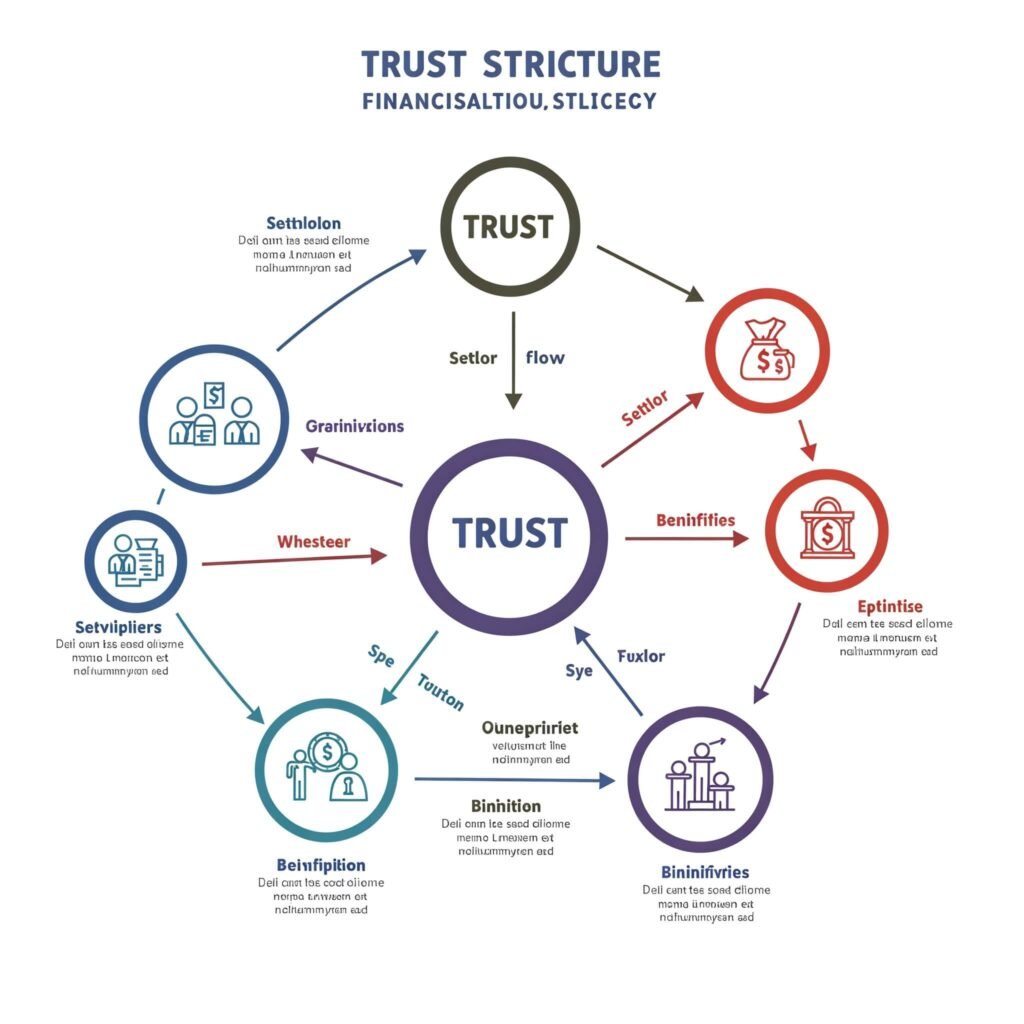
Have you ever thought about the legacy you want to leave behind? It’s not just about financial success in your lifetime; it’s about laying a strong foundation for future generations to thrive. That’s where trust planning comes in. Often perceived as complex, this crucial aspect of estate planning is fundamentally about strategically managing and transferring your assets to ensure their longevity and benefit your loved ones for years to come. This guide, Trust Planning 101, will demystify the process and show you how it can be a powerful tool in building true generational wealth.
Why is Trust Planning Essential for Generational Wealth?
Building generational wealth goes beyond simply accumulating assets. It involves thoughtful planning to protect those assets, minimize taxes, and ensure a smooth transfer according to your wishes. Trust planning offers several key advantages in achieving these goals:
- Asset Protection: Trusts can shield your assets from potential creditors and lawsuits, safeguarding the wealth you’ve worked hard to build.
- Tax Efficiency: Strategic use of different types of trusts can help minimize estate taxes, ensuring more of your wealth passes to your beneficiaries.
- Controlled Distribution: Unlike a simple will, a trust allows you to dictate how and when your beneficiaries receive assets, providing control even after your passing.
- Privacy: Trusts are generally private documents, avoiding the public probate process that wills go through.
- Long-Term Growth: Certain trusts can be structured to allow assets to grow over time, further enhancing generational wealth.

Understanding the Basics of Trust Planning
Trust planning involves creating a legal arrangement where a trustee holds and manages assets for the benefit of designated beneficiaries. Here are some fundamental components:
- Grantor (or Settlor): The person who creates the trust and transfers assets into it.
- Trustee: The individual or entity responsible for managing the trust assets according to the terms of the trust document. This can be you, a family member, a professional trustee, or a financial institution.
- Beneficiary: The individual(s) or entity who will ultimately benefit from the trust assets.
- Trust Document: The legal document that outlines the terms of the trust, including how assets will be managed and distributed.
There are various types of trusts, each serving different purposes in trust planning for generational wealth:
- Revocable Living Trust: This type of trust can be changed or even dissolved by the grantor during their lifetime. It allows for the transfer of assets outside of probate but doesn’t typically offer significant tax advantages.
- Irrevocable Trust: Once established, this type of trust generally cannot be altered or terminated by the grantor. Irrevocable trusts can offer significant estate tax benefits and asset protection.
- Testamentary Trust: Created through a will and comes into effect upon the grantor’s death.
- Special Needs Trust: Designed to provide for a beneficiary with special needs without jeopardizing their eligibility for government benefits.
- Generation-Skipping Trust (GST): Allows you to transfer assets to grandchildren or more remote descendants, potentially avoiding estate taxes at each generation.
(Outbound Reference Link 1: [Insert link to a reputable source explaining different types of trusts in detail, such as the American Bar Association’s guide on trusts: https://www.americanbar.org/groups/real_property_trust_estate_law/resources/estate_planning/trusts/])
Key Steps in Your Trust Planning Journey
Embarking on trust planning might seem daunting, but breaking it down into manageable steps can make the process much smoother:
- Define Your Goals: What do you hope to achieve with your trust planning? Is it primarily about asset protection, tax minimization, controlled distribution, or providing for a specific family member? Clearly defining your objectives is the first crucial step.
- Assess Your Assets: Take a comprehensive inventory of your assets, including real estate, investments, retirement accounts, and personal property. Understanding the scope of your estate is essential for effective trust planning.
- Consult with Professionals: This is a critical step. Seek advice from an experienced estate planning attorney and a financial advisor. They can help you understand the legal and financial implications of different trust structures and tailor a plan to your specific needs. (Outbound Reference Link 2: [Insert link to a reputable directory for finding estate planning attorneys, such as the National Academy of Elder Law Attorneys (NAELA) directory: https://www.naela.org/findalawyer])
- Choose Your Trustee: Carefully consider who will be responsible for managing your trust. This individual or entity should be trustworthy, responsible, and capable of fulfilling their duties.
- Draft the Trust Document: Work closely with your attorney to create a comprehensive and legally sound trust document that clearly outlines your wishes.
- Fund the Trust: This involves transferring ownership of your assets into the trust. Without proper funding, the trust won’t be effective.
- Review and Update Regularly: Your financial situation and family circumstances may change over time. It’s essential to review and update your trust planning documents periodically to ensure they still align with your goals.
(Original Outbound Reference Link 2 – now moved and renumbered): [Insert link to a resource on how to choose a trustee, e.g., an article from a financial planning magazine.])
Real-World Example: The Smith Family’s Generational Wealth Strategy
Consider the Smith family. Mr. and Mrs. Smith built a successful business over several decades. They wanted to ensure their wealth not only provided for their children but also their grandchildren. Through careful trust planning, they established an irrevocable trust that held a significant portion of their business assets. This not only provided potential estate tax savings but also outlined a clear succession plan for the business, ensuring its continued operation and benefit for future generations. The trust also included provisions for their grandchildren’s education, demonstrating a long-term vision for their family’s prosperity.

Actionable Takeaways for Building Generational Wealth Through Trust Planning
- Start Early: The sooner you begin trust planning, the more time you have to implement strategies and potentially benefit from long-term growth and tax advantages.
- Seek Expert Guidance: Don’t try to navigate the complexities of trust planning alone. Experienced professionals are invaluable partners in this process.
- Communicate with Your Family: While the specifics of your trust are private, discussing your intentions with your beneficiaries can help ensure a smoother transition and minimize potential misunderstandings.
- Focus on Long-Term Goals: Trust planning for generational wealth is a marathon, not a sprint. Keep your long-term vision in mind as you make decisions.
By understanding the fundamentals of trust planning and taking proactive steps, you can build a lasting legacy that benefits your family for generations to come. It’s an investment in their future, a testament to your foresight, and a powerful way to build true generational wealth.







































